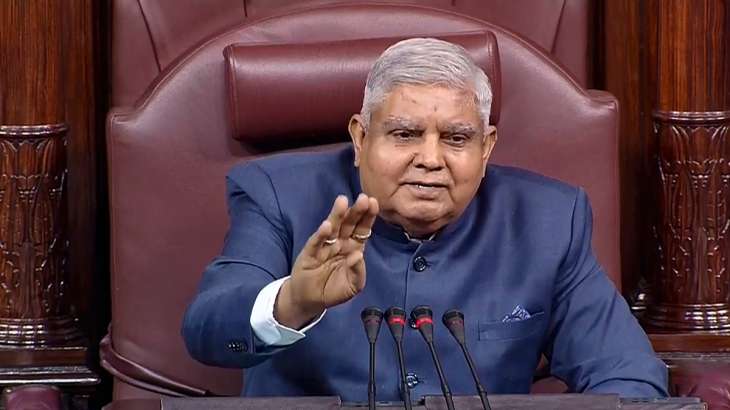
Rajya Sabha chairman Jagdeep Dhankhar has referred the three proposed laws seeking to replace IPC, CrPC and the Evidence Act to the Standing Committee on Home Affairs for scrutiny and asked it to submit its report within three months.
The three proposed laws include Bharatiya Nyaya Sanhita, 2023; the Bharatiya Nagarik Suraksha Sanhita, 2023; and the Bharatiya Sakshya Bill, 2023, which were introduced in the Lok Sabha by Amit Shah on August 11 in the recently concluded Monsoon Session and pending therein.
Once the Bills are passed, they will replace the Indian Penal Code (IPC), Code of Criminal Procedure (CrPC) and the Indian Evidence Act respectively.
During the introduction of these Bills, the Home Minister said that these would transform India’s criminal justice system and emphasised that the changes are being done for the speedy provision of justice and creation of a legal system which caters to contemporary needs and aspirations of the people.
In a bulletin late on Friday, the Rajya Sabha Secretariat stated, “Members are informed that on 18th August, 2023, the Chairman, Rajya Sabha in consultation with the Speaker, Lok Sabha has referred the Bharatiya Nyaya Sanhita, 2023; the Bharatiya Nagarik Suraksha Sanhita, 2023; and the Bharatiya Sakshya Bill, 2023, as introduced in the Lok Sabha and pending therein, to the Department-related Parliamentary Standing Committee on Home Affairs, for examination and report within three months.”
The Parliamentary Standing Committee on Home Affairs is of the Rajya Sabha and has members from both Houses of Parliament.
BJP MP Brij Lal is the chairman of the Standing Committee on Home Affairs.
The Bharatiya Nyaya Sanhita seeks to bring several changes in the existing provisions including that of defamation, attempt to commit suicide and expanded the scope of offence against women pertaining to sexual intercourse by employing “deceitful means”.
It also enumerates new offences like acts of secession, armed rebellion, subversive activities, separatist activities or endangering the sovereignty or unity in the new avatar of the sedition law.
For the first time, the word terrorism has been defined under the BNS which was not there under the IPC.
(With PTI inputs)
ALSO READ | Congress leader Rahul Gandhi nominated to Parliamentary Standing Committee on Defence
ALSO READ | Parliament: Lok Sabha passes Bill to levy 28 pc tax on on e-gaming, casinos